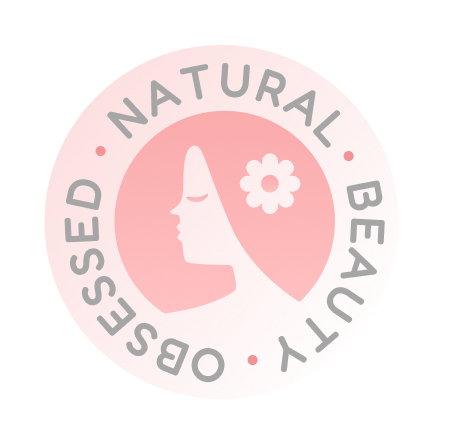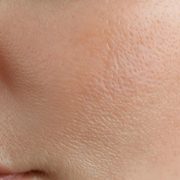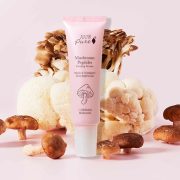Debunking Common Myths About Facial Oils for Oily and Acne-Prone Skin
Posted on March 23, 2024 Written by: 100% PURE®

If shaving really makes the hair grow back thicker and darker, let’s just say most razor companies would be out of business. While many common beauty myths have been dispelled, some continue to linger like a bad perfume.
Take facial oils for example, and the claims that putting oil on your face will make it oilier and more prone to breakouts: is this myth or fact?
Contrary to popular belief, facial oil is one of the best treatments for any skin type – including oily and acne-prone skin. In fact, using an oil can replenish your skin’s natural oils, which can keep oil levels balanced and breakouts at bay.
We’re here to debunk some common myths about facial oils, the best oil products for skin, and the benefits of using these wondrous beauty elixirs.
We understand that using a facial oil on oily skin sounds paradoxical and, well, terrifying! Is it a slippery slope into an acne apocalypse, or are facial oils simply misunderstood and actually skin-friendly?
Let’s start with what happens when skin has too little oil. If skin is deprived of natural oils, it will go into overproduction mode to make up for a lack of oil or sebum. Drying out oily skin by skipping moisturization like facial oils provide and using harsh, stripping ingredients will actually lead to breakouts, acne, and even more oil.
If you’re using the correct oil for your skin, it can help replenish your natural facial oils, which can keep levels balanced and breakouts at bay. Some facial oils can even target excess oil, and help to slough away dead skin cells that might clog pores, which could lead to acne.
Using a facial oil for oily skin types creates an layer to seal in moisture, keeping it hydrated and plump. These ultra-luxe elixirs provide anti-inflammatory and antibacterial benefits, which can help reduce the redness and sensitivity of acne while diminishing post-breakout discoloration. Facial oils also provide an extra sealant of protection, and can transform skin from dull to dazzling.

Lucky for your skin, no two oils are alike! That means there’s plenty of hope for oily skin in search of treatment! If you want to reap all the potential benefits of using a facial oil, you’ll need to choose one that’s formulated specifically to your skin type.
So, what kind of facial oils should you choose and why? You’ll want to use lighter oils that can be absorbed quickly and easily into your skin, so there’s no pore-clogging residue left to torment your complexion. Look for oils with a smaller molecular size: argan, squalane, and rosehip oils do the trick. If the molecular structure of an oil is too big, it won’t be able to penetrate the top layer of your skin.
Without further ado, here are the top 3 best oils for oily skin!
Argan Oil
We’ve seen it, heard about it, but don’t really know what secret skin weapons lie in argan oil. Not only does the vitamin E in argan oil act as an anti-inflammatory for irritated or sensitive skin, it may also bring hydration and balance to your skin’s sebum levels.
In our , we combine the skin-soothing benefits of vitamin E with the powerful antioxidants in argan oil to produce a “” love potion for fighting acne and fading acne scars. Argan oil is rich in oleic acid, which can improve skin permeability and assist with other ingredients penetrating the skin barrier. The Omega 6 fats in argan oil help to lessen the damage on our skin from all those sunny slay-cations, for smoother, blemish-free skin.
Olive Squalane
Olive squalane replenishes skin’s moisture barrier and leaves skin plump and hydrated. The texture is super-light, non-greasy, and absorbs well into the skin, making it a skin-superstar for all skin types.
Squalane’s non-comedogenic quality is useful for balancing sebum production and regulating excess oil production in oily or acne-prone skin types. Even oily skin types can benefit from squalane – especially if their dermis has been stripped by drying acne products.
As for using squalane oil for oily skin, it can be used daily to maintain light moisture levels. Try using a few drops of this beauty elixir, or add to a lightweight moisturizer. Our is a lightweight moisturizer that’s great for hydrating the skin and is free of heavier oils, making it a favorite for oily skin types. It’s made with chia seed gel, nopal cactus, and hyaluronic acid to provide quenching, skin-plumping hydration.
Rosehip Oil
As a long-beloved skincare ingredient, rosehip oil remains popular today, and for good reason. Whether you’re looking to clear acne, reduce redness, or just keep things firm and bouncy, rosehip oil is a multi-tasking skin superhero!
Particularly, rosehip oil is beloved for its concentration of antioxidants–specifically, polyphenols and anthocyanin. And we love antioxidants for our skin because they can help fight inflammation. This is a big deal for inflammation associated with acne.
Rosehip oil is rich in linoleic acid, which can help regulate the skin’s natural oil (sebum) production, and non-comedogenic, meaning it is unlikely to clog pores. These properties make it suitable for oily and acne-prone skin types. The anti-inflammatory properties of rosehip oil can also help reduce redness associated with acne breakouts. Its antioxidant content also supports skin healing and regeneration, potentially helping to diminish the appearance of acne scars.
We like to think of our as a superhero for the skin. Deeply hydrating rosehip oil is rich in vitamins and omega fatty acids to deeply replenish thirsty skin. The essential fatty acids in rosehip oil help in improving skin texture and reducing the appearance of scars by promoting skin regeneration and elasticity. This cold-pressed oil offers maximum potency to effectively target fine lines, loss of elasticity, and uneven skin tone.

Facial oils can help to fortify the skin’s moisture barrier, keeping more hydration in and pushing pollutants out. Regular use of a facial oil can help with acne management, improved skin texture, better skin balance, and a more even tone. Just when you thought the benefits of facial oils for oily or acne-prone skin couldn’t get better, maximize those skin advantages and more with nighttime facial oil use!
Here are some of the perks of the best facial oils for oily skin for your daily and nightly skincare routine!
Intensive Nourishing Facial Oil
Our is lightweight, making it a friendly choice for oily skin. This wonderfully silky oil moisturizes without leaving a heavy, greasy feeling behind. So why is it so good for you in the first place? The main ingredient in this formula is . It’s an amazing antimicrobial oil that helps fend off acne-causing bacteria.
Grapeseed oil also contains an omega-6 fatty acid called linoleic acid. Your skin barrier is composed of tons of fatty acids and lipids that help your skin retain moisture naturally. Linoleic acid is one of the most prominent. Without them, you would develop a compromised skin barrier. In fact, show that acneic skin usually lacks this particular omega-6. That’s why oils rich in linoleic acid are great for oily or acne-prone types!
Working alongside grapeseed oil are blackcurrant and rosemary oils. We love using antioxidants like blackcurrant, which is rich in flavonoids and polyphenols. The rich pigment and strong flavor of these berries is proof of their impressive nutrient profile! This potent ingredient works to help boost UV protection and protect from free radicals found in pollution, smoke, and other environmental stressors.
Multi-Vitamin + Antioxidants Facial Oil
Our favorite part about our is the fact that it’s infused with tons of antioxidants. Think vitamin E, vitamin C, vitamin D3, coenzyme Q10, and retinol. Not only are you getting these potent concentrations of free radical fighters, you’re getting oils rich in vitamins and skin barrier protectors. Rosehip seed oil and green tea oil are just two examples of antioxidant-rich oils in this formula.
A common objection is that vitamin C and retinol shouldn’t be formulated together. While certain kinds of vitamin C contain a different pH than retinol, tetrahexyldecyl ascorbate is the form of vitamin C we use in this oil. It’s a much gentler, more stable version compared to ascorbic acid. It’s also oil-soluble so you don’t have to deal with any grainy textures.

Although these facial oils may not have landed a spot in our top 3 best oils for oily skin, they’re still major players in the natural beauty scene with some amazing benefits. Let’s find out who these gems are and unlock their skin-loving benefits.
Tea Tree Oil
You can’t miss this oil: its crisp, herbal scent can reach the moon – and so can its benefits. This light, non-comedogenic oil is ideal for acne-prone skin due to its antibacterial and anti-inflammatory properties. It can kill bacteria that live in oily regions of pores on your face to help eliminate those pesky, painful .
If you have sensitive skin, you’ll need to be mindful how you’re using tea tree oil. It’s a potent essential oil – hence its mighty acne skin-fighting properties – and will therefore need to be diluted in a carrier oil.
Marula Oil
Marula oil is a lightweight, fast-absorbing, and antioxidant-rich beauty elixir that may have well fallen from the hands of the skincare gods. Marula oil is always a great choice for acne-prone skin since it’s light in texture, kills acne-causing bacteria, and it won’t clog pores.
Add a few drops of facial oil to your moisturizer, or apply the oil and layer a lightweight moisturizer over it once it’s absorbed.
Green Tea Oil
If its skin and health benefits are as over-the-moon wonderful as drinking its liquid counterpart, green tea oil is invited to the party anytime! As we know, excess oil or stripping your skin of its natural oils can clog pores and lead to breakouts. The polyphenols and EGCG, a main catechin or polyphenol in , are effective in controlling sebum production and breakouts.
Green tea oil’s antibacterial properties help tame bacteria that can live in oily pores, which causes painful acne bumps. EGCG is responsible for that antimicrobial activity – it’s a true multitasker and a prized skin care gem!
Green Tea EGCG Concentrate Serum
We love the soothing but potent nature of green tea: one of the main components in our . But we really love the skin-balancing, hydrating powers of squalane and rosehip oils in this nutrient-dense formula!
Green tea oil’s antibacterial properties help tame bacteria that can live in oily pores, which causes painful acne bumps. EGCG is responsible for that antimicrobial activity – it’s a true multitasker and a prized skincare gem!
In addition to free-radical fighter green tea, this antioxidant serum features avocado oil to enhance radiance, protection, and healing. We’re sure you didn’t need more convincing, but this formula works overtime to bring skin to a harmonious state, with a backup of anti-acne ingredients that keep oily skin and breakouts at bay.
Watermelon Cucumber Locking Serum
Our intensely hydrating locks in watermelon hydrosol to revitalize dehydrated skin cells with skin-plumping polyglutamic acid from fermented natto beans and moisture-retaining hyaluronic acid. Rice ceramide helps soothe redness-prone or compromised skin with its anti-inflammatory properties, while also improving its overall appearance with moisturizing benefits and a reduction in fine lines and wrinkles.
This long-lasting serum hydrates, plumps, rejuvenates, and smooths skin with watermelon and and hyaluronic acid (from sweet potatoes). This cruelty-free serum also helps to promote cell regeneration and reduce signs of aging. It includes moisturizing Irish Moss Extract – plus antioxidant olive squalane to provide long-lasting hydration without a greasy feel.
Nopal Cactus Cleanser
The trifecta of purifying, anti-aging, and anti-inflammatory properties in our will have you saying hello to a softer, more hydrated complexion with every wash.
High levels of vitamin E, C, and B – plus essential fatty acids – don’t just keep cacti hydrated – they have the same effect on your skin. As with any plant that grows in extreme conditions, cacti are packed with antioxidants; that means they’re beneficial for cancelling out free radicals and inflammation in the skin – great news for oily and acne-prone-skin types!
The addition of aloe soothes dry skin, and restores a splash of much needed hydration, while olive squalane helps purify pores and balance oil. Bergapten-free bergamot oil fights acne-causing bacteria to reduce your risk of new blemishes, while brightening old acne scars and your overall complexion.
How Can Facial Oils Benefit Oily and Acne-Prone Skin Types?
Yes! Contrary to belief, facial oils actually help calm and balance oily an acne-prone skin types. Rosehip, squalane, and argan oils are all excellent options for balancing oily skin and adding hydration without clogging pores. Adding an oil with anti-inflammatory properties, like green tea oil, will provide acne-fighting benefits.
What Are the Misconceptions About Using Oils on Oily Skin?
Many people believe that adding oil to their already oily skin will only exacerbate oiliness, but this is not necessarily true. In fact, some oils can actually help balance oil production by providing the skin with the hydration it needs. Others believe that oils on oily skin will clog pores and cause breakouts, and that’s untrue. Non-comedogenic oils like green tea, squalane, and argan are less likely to clog pores and cause breakouts. In fact, they can even help reduce inflammation and acne-causing bacteria on the skin.
Can Using Facial Oils Lead to Increased Acne Breakouts for Oily Skin?
If it’s a natural oil meant for oily and acne-prone skin types – like the ones talked about above – those specific oils are highly beneficial. Anyone can use face oils; just make sure you’re using the right ones for your specific skin type. Find out if oil in your skincare routine is a friend or foe! There are many types of oil – and not all of them cause breakouts.
How Often Should Facial Oils Be Applied to Oily Skin for Best Results?
You should use face oil every morning and at night for the best results. Don’t forget to let the oil fully absorb into the skin before applying other products or makeup. If you layer products without letting them absorb properly, it can lead to pilling, which means you’ll have to start all over again.
Can These Facial Oils Be Combined with Other Acne Treatments for Oily Skin?
Yes. Since these are natural oils, it’s fine to use them with other products.
Hopefully, we’ve calmed your mind and cleansed it of any myths preventing you from using facial oils for your oily or acne-prone skin type. Simply adding a few drops can do major wonders for your skin. No myths, just facts, and the rest is for you to unlock the ultimate skincare secrets of facial oils.




